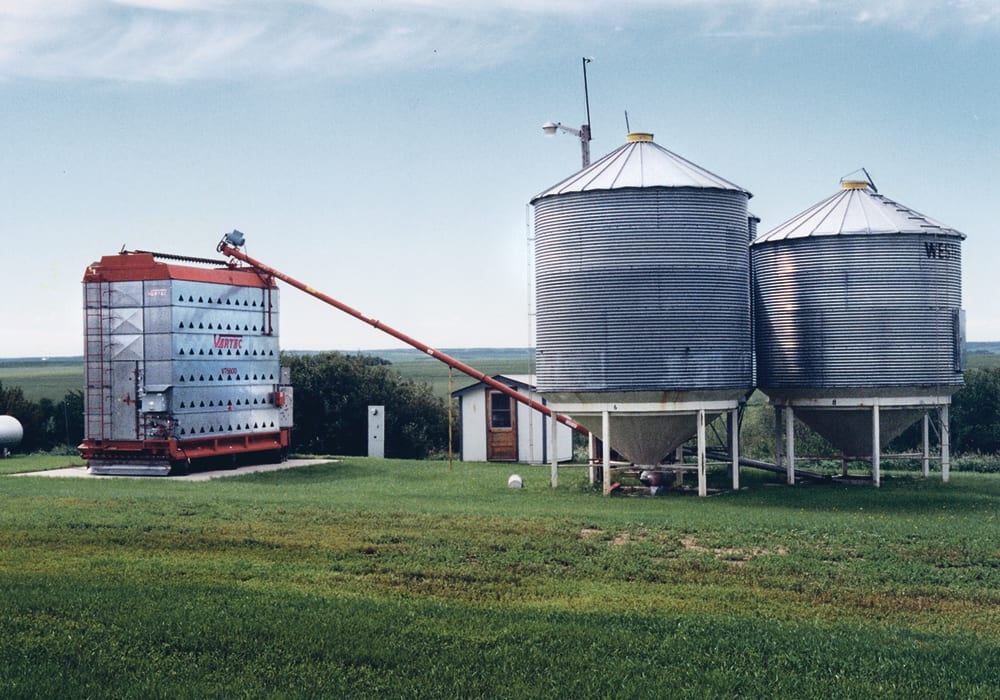‘Unprecedented’ grain drying demand this year is stretching companies’ ability to deliver propane to producers
Some farmers are experiencing lengthy delays getting the propane they need to dry their grain.
Ian Boxall, a farmer from Tisdale, Sask., hasn’t experienced any problems but he has spoken to growers who have.
“I have talked to people up here in the northeast that are waiting up to 14 days,” he said.
The delays are making a miserable harvest even more frustrating.
“It’s just another added stress that nobody needs,” said Boxall, who is vice-president of the Agricultural Producers Association of Saskatchewan.
Read Also

Using artificial intelligence in agriculture starts with the right data
Good data is critical as the agriculture sector increasingly adopts new AI technology to drive efficiency, sustainability and trust across all levels of the value chain.
Some growers are storing their wet grain in air-tight bags, while others are piling it on the ground and stirring it occasionally with a loader.
Boxall spoke to a grower from Kelvington, Sask., who came up with a different solution after waiting 12 days for propane delivery.
“He has quit combining,” he said.
“He doesn’t have access to a bagger, he doesn’t want to pile it on the ground because of rot and loss, so he has quit.”
Keith Morin, director of propane with Federated Co-operatives Ltd., stressed that there is no propane shortage in Western Canada.
It is a logistics issue. There is a bottleneck getting product from the gas plant, terminal or refinery to the end user.
Demand for the product is overwhelming the ability to deliver it. For instance, propane demand was triple the normal volume in Melfort, Sask., in September.
“It’s just a huge grain drying season that is just unprecedented,” said Morin.
“I’ve been in this company for 30 years and haven’t seen anything like it ever.”
And there are still plenty of wet crops waiting to be combined and dried. Nearly one-quarter of Saskatchewan’s crop was unharvested as of Oct. 8, while 60 percent of Alberta’s crop was still in the field as of Oct. 2.
Morin said propane demand has been stronger than usual in most of the areas where the company operates from British Columbia to northwestern Ontario.
The company has been able to keep up with the increased demand for the most part, getting product to farms within one or two days.
But that is not the case in northeastern and east-central Saskatchewan. FCL’s branch in Melfort is experiencing a seven-to-10-day delay between order and delivery, while Yorkton is three to five days behind.
“That’s unheard of and we’re certainly doing our best to try to alleviate that and reduce those wait times because we know how important it is for farmers to get that propane to their door when they need it,” said Morin.
The company has hired and is training new drivers, is maximizing the hours of its existing drivers and has management driving trucks.
“I don’t know how many people we’ve added. I’ve lost track,” he said.
However, it takes time to properly train drivers, a process that can’t be rushed due to the safety issues involved in hauling propane.
“It’s not a snap your fingers and the problem goes away type of thing,” said Morin.
He believes it will take three weeks to a month to cut into wait times, depending on weather conditions and how demand evolves in other regions of the Prairies as more crop is harvested.
Morin said farmers are “greatly important” to FCL and he vowed that the organization will learn from this experience and have a better contingency plan in place going forward.
“We could react quicker and just be a bit more nimble getting excess capacity up and running,” he said.
















